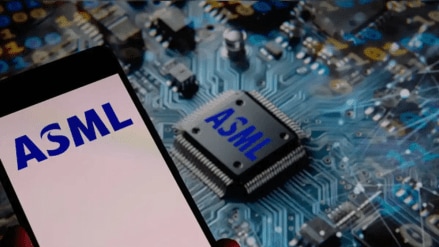ASML Holding NV, the world’s biggest supplier of semiconductor lithography equipment, on Tuesday made a strong pitch for business in India as the government steps up efforts to build a domestic chip industry and cut dependence on imports.
What did Christophe Fouquet say?
Speaking at the Semicon India summit, chief executive officer Christophe Fouquet said the Netherlands-based company was eager to collaborate with Indian chipmakers as they scale up in the coming years. “We are dedicated to supporting India’s ambition, whether through collaboration, knowledge exchange or talent,” he said. “Our advanced lithography solutions can help Indian fabs to achieve cutting-edge performance.”
ASML, headquartered in Veldhoven, is a key supplier to Taiwan Semiconductor Manufacturing Co. and Samsung Electronics Co. The company’s machines are essential for producing advanced semiconductors used in mobile devices, medical equipment, defence technology and artificial intelligence.
As reported earlier, the first made-in-India chips are expected to reach the market by the end of this year. The initiative is part of the government’s Rs 76,000 crore incentive scheme for creating a domestic ecosystem of the entire value chain of chip making by attracting domestic and international players.
Among the biggest projects announced so far is an Rs 91,000 crore wafer fabrication plant by Tata Group in partnership with Taiwan’s Powerchip Semiconductor Manufacturing Corporation. Another significant investment is Micron Technology’s Rs 24,000 crore assembly and testing facility.
India’s chip production plan
India is expected to focus on less advanced chips initially, with its semiconductor market projected by ASML to exceed $55 billion by 2026 and $100 billion by 2030. The government’s efforts mirror similar moves by the US, Japan and China to strengthen domestic manufacturing as trade tensions disrupt global supply chains.
For ASML, India offers a potential growth market at a time when geopolitical frictions have constrained sales in China, its second-largest market after Taiwan. China accounted for 27% of ASML’s net system sales in the June quarter, ahead of South Korea, the US and Japan. The company has never been permitted to sell its most sophisticated machines to Chinese customers, and fresh export restrictions have further narrowed what it can ship there.
Fouquet’s pitch comes as ASML tempers its growth outlook for next year, with trade disputes weighing on demand. The company sees India’s emerging semiconductor ecosystem as a fresh opportunity to balance global headwinds and deepen ties in Asia.
